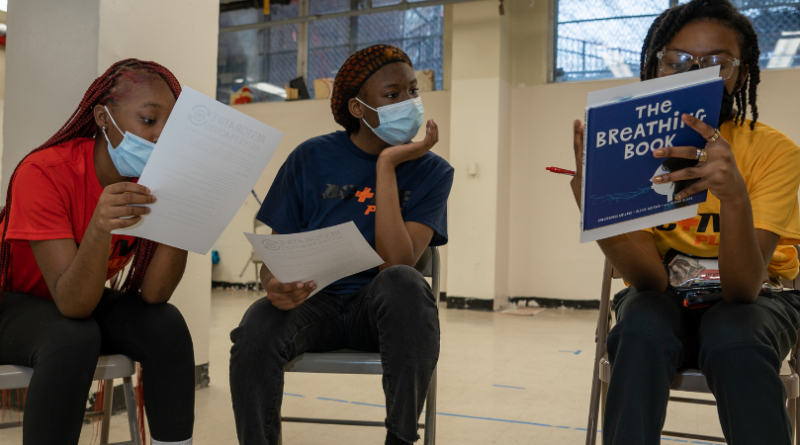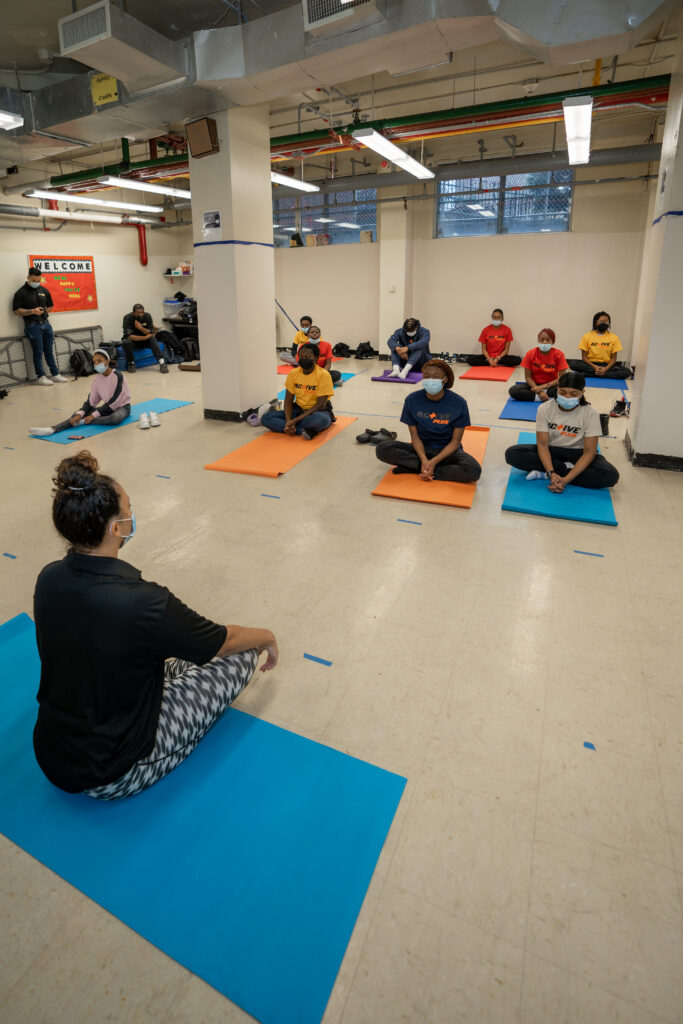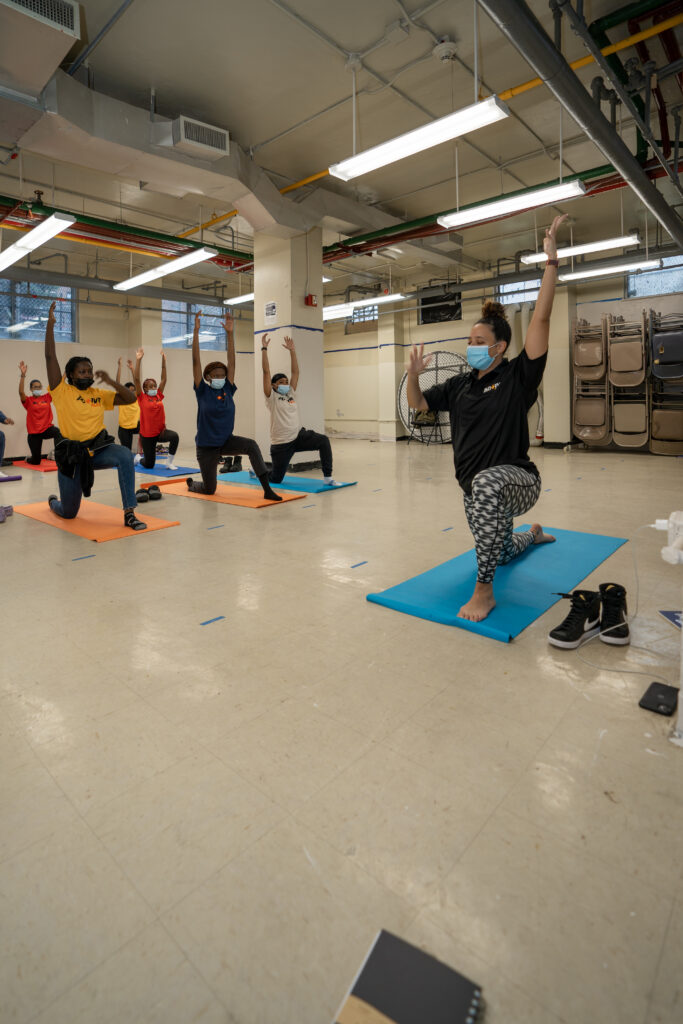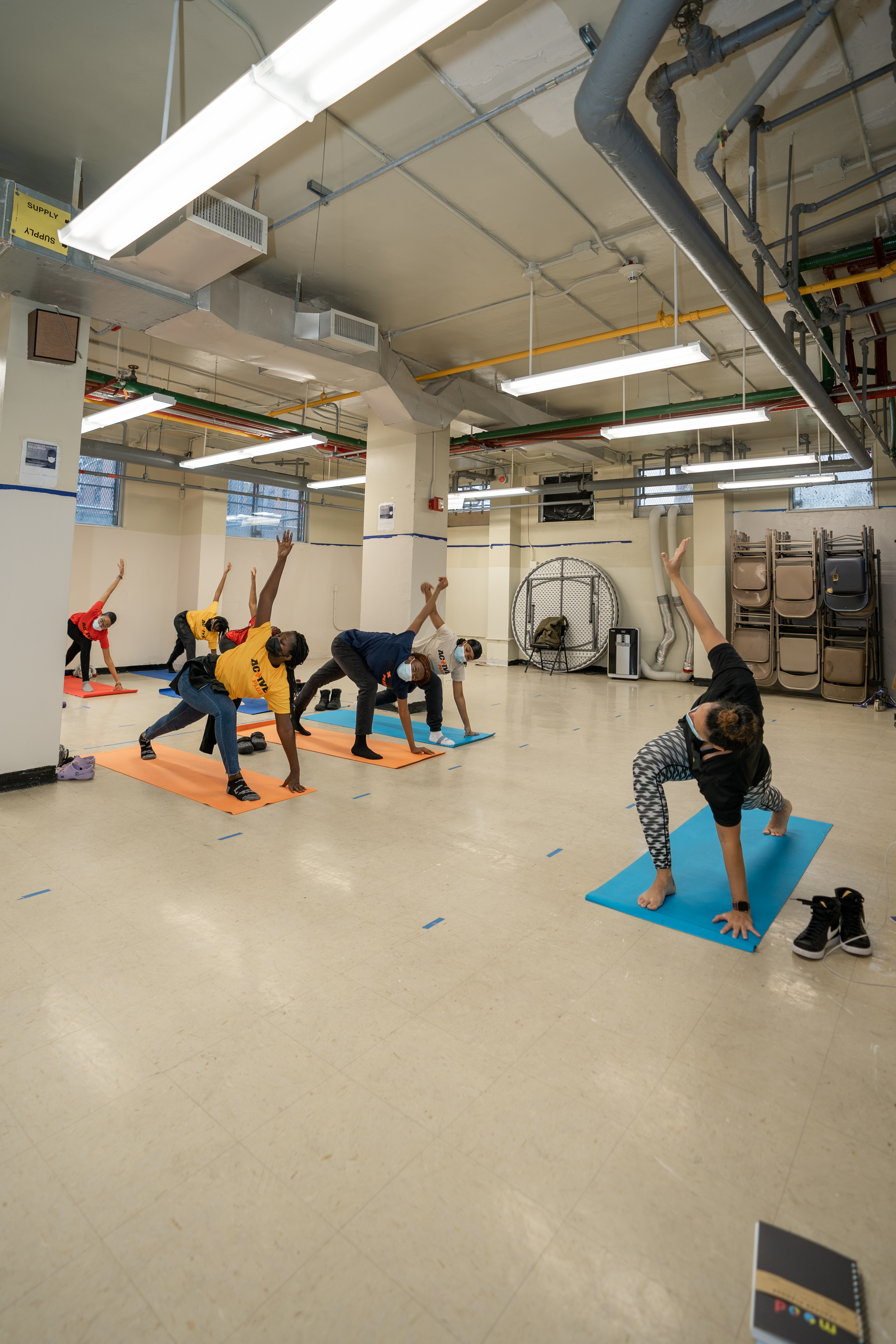Celebrating the Success of the Heal the Violence Program
Public health experts agree that uplifting young people can help prevent youth violence. This winter, NYCHA’s Heal the Violence program provided 260 young NYCHA residents with anti-violence workshops where they received mentoring, learned ways to navigate their emotions and social challenges, and developed solutions for curbing violence in their communities.
The workshops – led by community organization partners – provided participants (who were ages 14 to 24) with activities such as healing circles, discussions on anti-violence and self-esteem, restorative justice training, conflict mediation, photography, art and sound therapy, mindfulness, and yoga. Workshops and classes were held one to two times a week, either virtually, in-person, or both. Participants received stipends of $150 and youth leaders received $300.
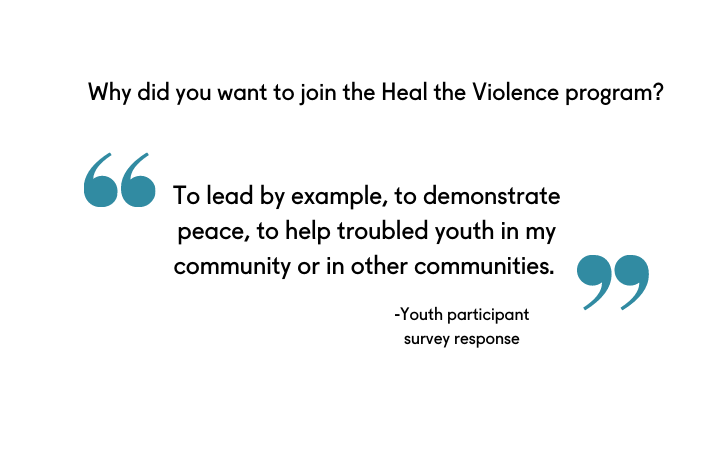
The $720,000 program was funded by the City from a larger $2 million grant for youth programs.
Young people surveyed at the end of the program said that as a result of completing Heal the Violence, they feel they are becoming community leaders who can address violence through education and activism.
At a virtual celebration of Heal the Violence held in January, Sideya Sherman, NYCHA’s Executive Vice President of Community Engagement and Partnerships and Executive Director of the City’s Taskforce on Racial Inclusion and Equity, discussed with participants how the program grew from resident feedback on the importance of youth leadership programs and giving young people an opportunity to come up with solutions for their community’s issues: “We know that we won’t solve this problem without you, without young people being the leaders and really helping to design solutions that make sense for the communities you live in. You’ve all got the power to do that; this program has positioned you to do that.”
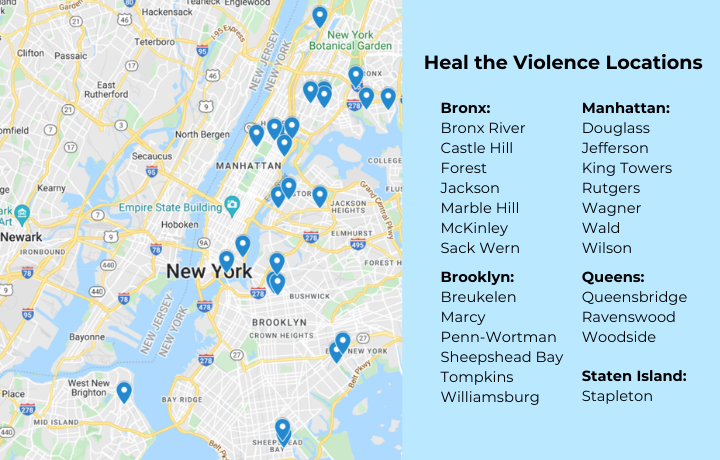
What did youth participants say about the Heal the Violence program?
“The reason I joined the program was because there’s so much violence in New York City, specifically and particularly people in my age group, and I wanted to learn some things on how to prevent it,” said Malika Qaza, 16. One of her favorite parts of the program were the healing circles from Families and Friends of the Wrongfully Convicted, because they allowed young people to share their pain and receive support.
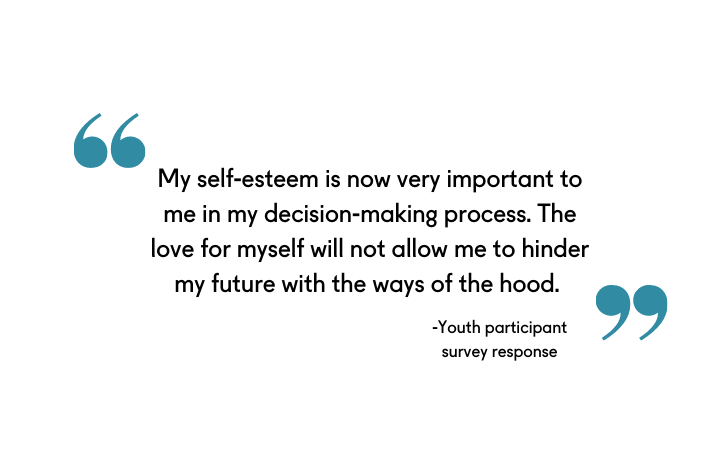
Participant Lesly Jimenez echoed the importance of safe spaces for teens: “It was a really safe space for me — it was like free therapy for me and everybody in the program. [Through workshops with 100 Suits for 100 Men], we would talk about how to avoid violence, how to overcome violence if we’re in a situation, and, overall, how not to be in a violent situation and be a better person and help other people be better people and not choose violence, but choose peace.”
Another participant, Anylah Barrett, talked about how the discussions on self-esteem through the Wheelchairs Against Guns (WAG) workshops helped her most because “it’s something that every teen now is going through; we don’t know who we are, and we have something that we have to figure out.”
Many of the young people plan to take what they’ve learned and share with friends. Cisco Colon, 20, also participated in WAG workshops and learned that “changes can be had when you believe, when you have others to guide you with resources and strategies to avoid violence, more youth programs that allow you to have a safe space, and community activists dedicated to change. My vision is to inspire the youth in my community with the many skills I’ve gained.”
What did the anti-violence partner organizations say about the program?
NYCHA partnered with organizations that have been on the ground, working to interrupt violence in their communities. The 13 partners were (click partner name to learn more about the organization):
At the celebration event, partners thanked NYCHA for being in the community working with young people.
“For NYCHA to be in our community engaging our youth where they live, I can’t express enough of the importance of that in our community,” said Hassan Yasin, Founder of Giant Thinking. “I’ve been doing this work for about two decades, and I’ve never seen a program really have something for our youth where they live at in their communities. Even the parents said, ‘When does the program come back?’ ‘How do we continue to engage these youth?’”
Tarik Kitson, Executive Director and Founder of Active Plus, agreed: “As we all know, gun violence is on the rise, and especially in central Harlem. So, the fact that NYCHA is recognizing these issues in the community is super important.”
Angel King, Breukelen Houses Resident Council President, worked with FARM and her youth organization DREAM on Heal the Violence at her development, and said the program meant a lot to the community: “The kids really got a chance to sit and talk about the things that were bothering them, things that they’ve experienced. Sometimes we don’t realize how much trauma these kids experience in school, from bullying to social media.”
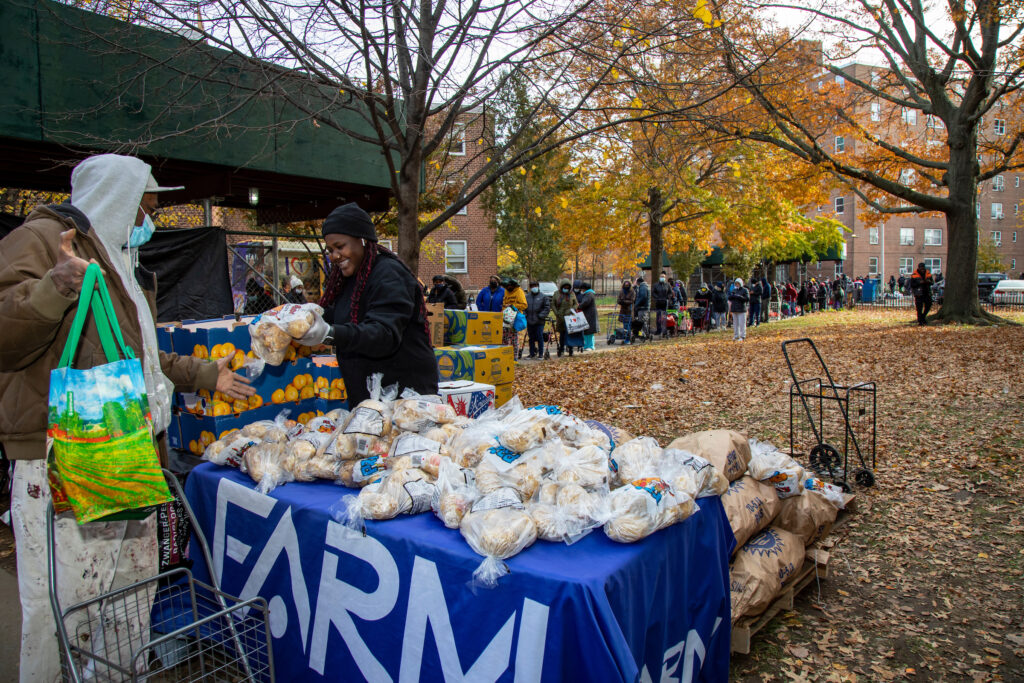
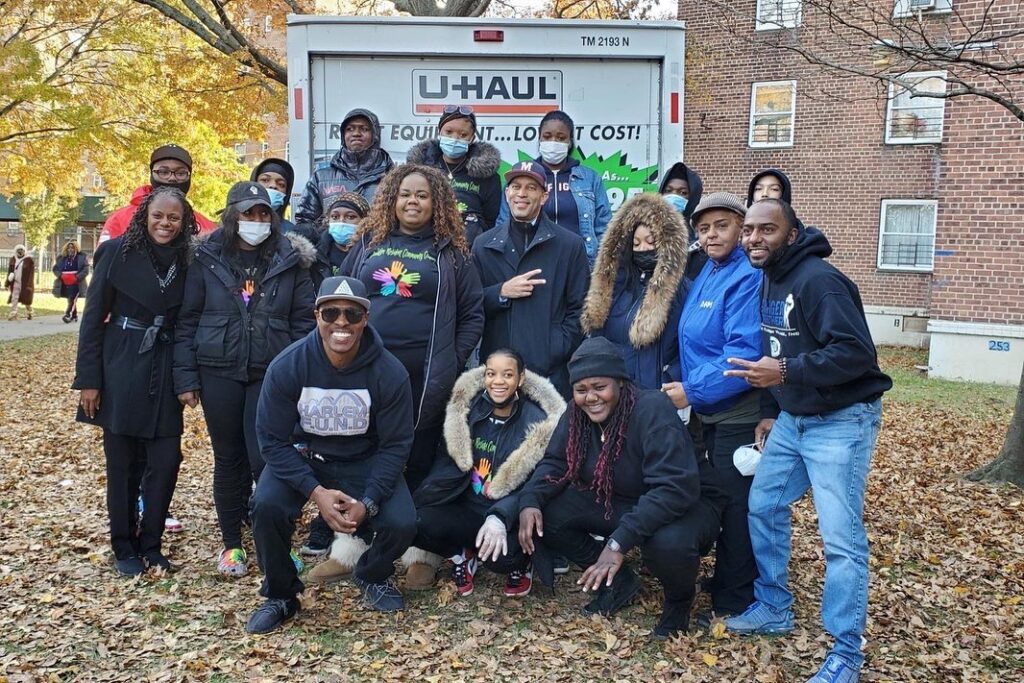
Justin Guaman of 100 Suits for 100 Men talked about how important it is to have programs like this that support young people in dealing with their emotions: “We’re really trying to support our community through mentorship, through helping students to see how they can be in a community where they’re part of a different type of gang, a positive community where they can influence and instill positive self-esteem within themselves and others. As much as possible, we try to address their emotional health, like, ‘Hey, can you get in tune with the sadness and the anger you’re experiencing?’ And then how to address those emotions in a healthy way – we’re going to find different outlets to express those emotions.”
It wasn’t only youth and partners who recognized the benefits of the program. Carmen Williams’ daughter participated in the WAG workshop, and she wants more opportunities like this for youth at her development: “A lot of the kids hear about the effects of gun violence, but to actually see it firsthand by people who are living with the effects of gun violence is a real eye opener for them. I see my daughter being an advocate for a program like this in the future. [At Frederick Douglass Houses], we don’t have any programs right now catering to the youth and trying to bring them together. I think this program is excellent and it’s so, so needed.”
Feature photo courtesy of Active Plus.

